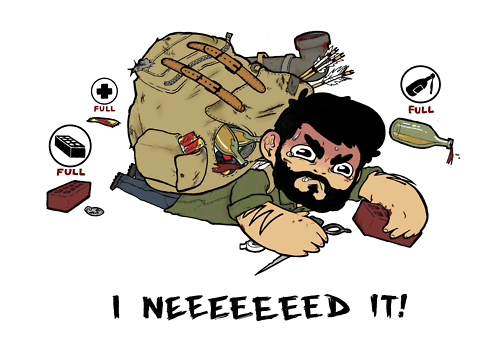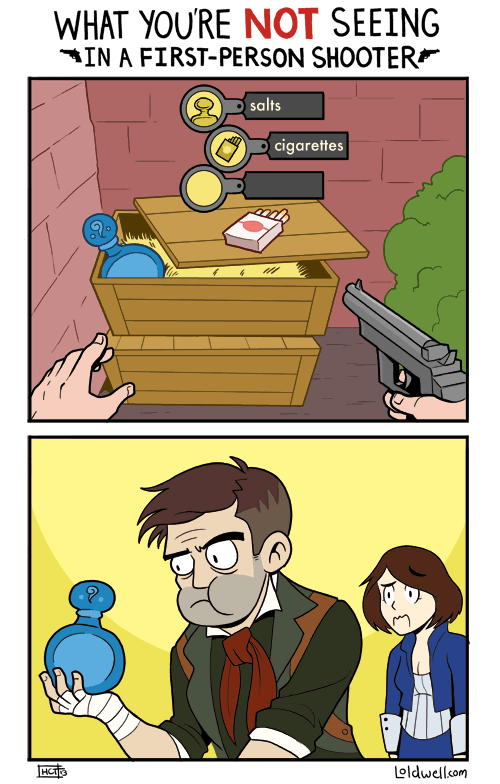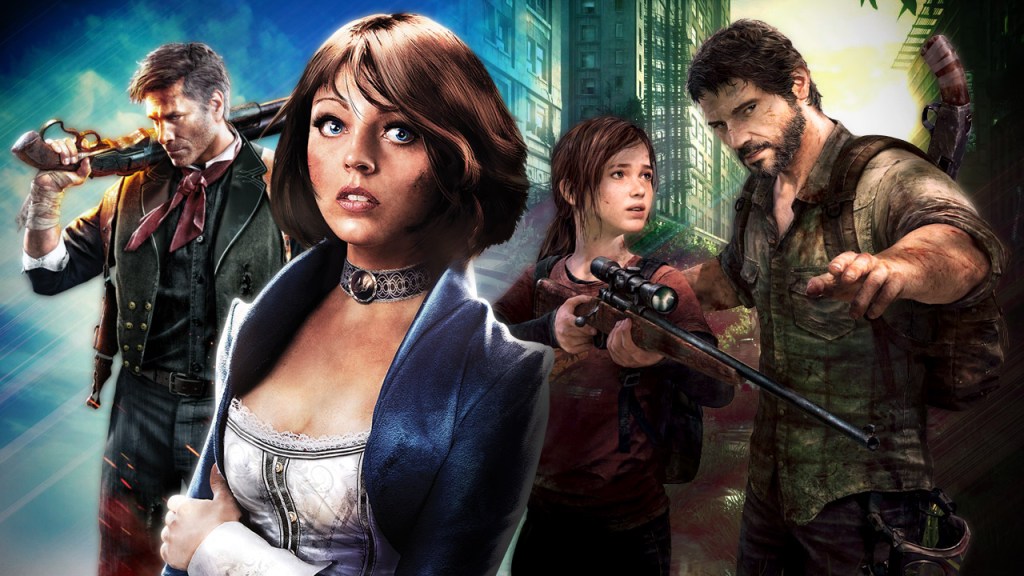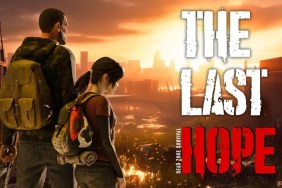There is a pivotal moment in The Last of Us when you, as grizzled protagonist Joel, are reunited with your brother, Tommy. Amidst the wreckage of the post-apocalyptic world, Tommy has helped create a safe haven in the form of a hydroelectric power plant, in which he invites both you and your young companion Ellie to stay.
The power plant provides food, shelter, and safety, three things which have been all too scarce in Joel and Ellie’s world. Being allowed a moment of respite, in a place to lay your head without fear of attacks from bandits or the infected, should make for a touching moment in the game’s narrative. However, as Tommy offers to show you around the place, giving Joel the first glimpse he’s had of a civilized society in months, you are instead too preoccupied with picking up scraps of paper, scissors, and screws scattered in your surroundings. As Tommy is discussing how he and his fellow survivors have managed to forge some semblance of normalcy among the chaos, you are guiding Joel towards a workbench, where you use those scraps you have acquired to upgrade your revolver.

Of course, Tommy, being a video game character, doesn’t express any disapproval that you’re too preoccupied with lessening the recoil of your gun to feign interest in his story of survival. He simply stands around, waiting for you to finish without even questioning your listlessness. It’s not your fault, though. The game encourages you to tirelessly search every room you venture into in order to collect supplies, and by plonking a workbench right in the middle of what should be an important moment in the game’s narrative, developer Naughty Dog invites you to ignore their carefully crafted dialogue in favor of indulging in some impromptu litter-picking.
Similarly, BioShock Infinite’s plot is interwoven with segments where you find yourself rummaging through the pockets of corpses in order to collect bandages, chocolate bars, and the like. As is the case with The Last Of Us, you’ll often find yourself engaged in an important conversation with your companion Elizabeth, only to wander away from her in order to sort through some trash. She carries on talking regardless of you abandoning her in order to eat food out of a bin, until she is but a faint murmur in the distance.
It's a shame because both The Last Of Us and BioShock Infinite are great in their own ways. The former is unparalleled in its intensity and puts a refreshing amount of value in subtlety over loud, expensive cinematics, while the latter makes us think differently regarding what games could achieve with their narrative. If you were to attempt to convert someone whose opinion of video games as a medium had been sullied by the slew of unimaginative Space Marine-‘em-ups we’ve been inundated with over the past few years, you could do a lot worse than introducing them to the neoclassical beauty of Columbia or having them traverse the hostile ruins of the plague-ridden United States. However, the impact of both of these games is ultimately lessened by the fact that their gameplay is beholden to the act of collecting anything and everything that isn’t nailed down in their environments.

Collecting diminishes both games in different ways. In BioShock Infinite, developers Irrational Games had crafted a narrative so intricate and engrossing that it seemed their creativity was spent on the story of Columbia and not enough on the gameplay. Similarly, the focus in The Last Of Us on collecting nullified its main objective, which was to transport Ellie from Point A to Point B in exchange for a variety of weaponry. The fact that weaponry and ammunition were actually plentiful in the game’s setting seemed to render Joel’s mission pointless, and even though supplies were supposedly scarce, I found myself always in possession of a couple of health packs and explosives in a time of need. Considering The Last Of Us intended to depict a more realistic post-apocalyptic world where the conservation of equipment and supplies would be necessary for the player’s continued survival, only a handful of times did I find my ammo running low in the middle of a firefight, and rarely was I unable to bandage myself up after an unfortunate encounter with a zombie. Ultimately, the gameplay contradicted the game’s premise.
Video games typically intend to instill a sense of achievement in their players, and collectibles help achieve this. Whether they are in the form of golden, shiny coins or upgradeable parts for your gun, they have become synonymous with progression in games, with the obtaining of items and upgrades often crucial to achieving success. However, neither The Last Of Us nor BioShock Infinite are about achieving, but rather they are about experiencing, and this is where both Naughty Dog and Irrational missed the mark. They gave us these beautiful worlds to explore, these compelling characters to meet, but then told us to ignore all of that in favor of rifling through cupboards.











